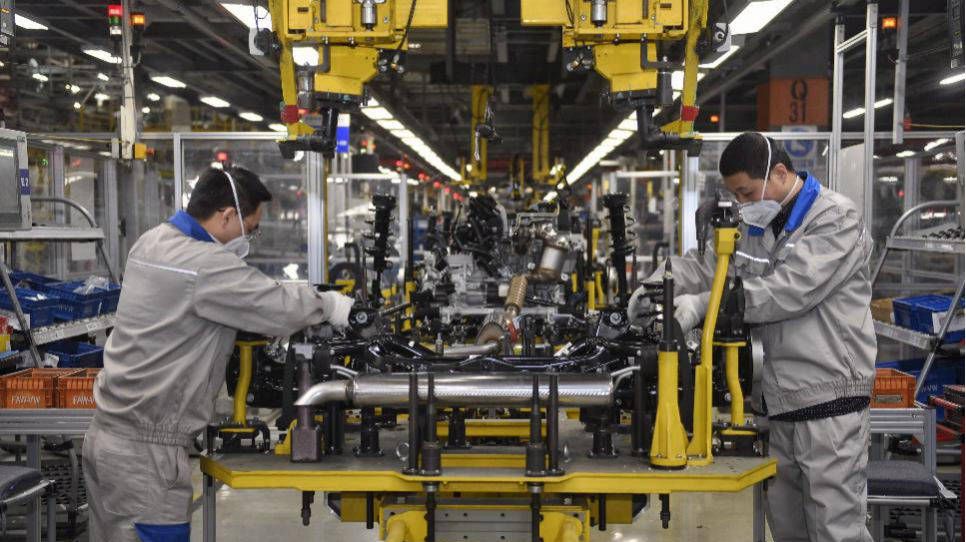News Center

Foreign CEOs confident in Chinese projects amid epidemic Release date: 2020-02-24 Source:Xinhua

Foreign executives have expressed confidence in their business prospects in China despite the epidemic as the construction and operation of their projects in the country are back on track under local governments' supportive measures.
Construction of the theme park Universal Beijing Resort resumed on Feb. 9 in Tongzhou District, and as of Thursday, more than 5,000 workers had returned to the construction site covering a total of 400 hectares.
The president of the resort, Tom Mehrmann, expected the construction work to be in full swing by late February or early March.
Measures such as closed-off management, online meetings, body temperature screening, 14-day quarantine of the returned migrant workers and regular disinfection mechanism have been adopted to avoid cross-infections.
Tongzhou District government had guided the epidemic prevention, carried out an all-round inspection and streamlined relevant approval procedures to facilitate the construction resumption.
"I know the government makes efforts to restart the economy to get people back on their feet," Mehrmann said. "The resort is taking very good shape. Our goal would be to open as early as possible."
As planned, the resort will open to tourists in May 2021.
Facing a shortage of protective gears, raw materials, labor and rising costs related to the epidemic control, many companies, including those with overseas funds, are experiencing difficulties amid the spread of the novel coronavirus in China.
To help businesses pull through, governments at various levels have rolled out supportive measures such as tax and fee cuts, allowing companies to delay payment of social security premiums, and facilitating returning of migrant workers. Banks are also encouraged to help, in the form of delaying loan payments, cutting interest rates and waiving overdue interest.
The Chinese authorities have coordinated efforts to solve problems foreign enterprises encounter so as to minimize the impacts of the epidemic, Geng Shuang, a foreign ministry spokesperson said Wednesday.
In general, the impact of the epidemic on China's economy was short-term and temporary since the Chinese government had sufficient policy space to boost the economy, and the long-term positive trend of the economy would not change, Geng told an online press briefing.
On Feb. 14, Oaktree Capital Management, a global asset management firm focused on alternative markets, registered a wholly-owned subsidiary in Chaoyang District of Beijing.
Founded in 1995, Oaktree Capital manages over 120 billion U.S. dollars in assets for its clientele across the world.
Despite the fact that China's economy has been temporarily hit by the coronavirus outbreak, Oaktree Capital will not change its prospects on the long-term growth of the Chinese economy, according to an executive with the firm.
Right after the Lunar New Year holiday, Swire Properties Chinese mainland CEO Tim Blackburn flew from London back to Beijing.
Swire Properties, a Hong Kong-based property developer covering business in residential and commercial properties, hotels and property management, has been affected by the epidemic although there are no exact numbers of the total loss yet.
"I wanted to come back to support my team and we wanted to keep our projects open to support the public's needs," Blackburn said.
This CEO said the company was applying for loan and tax relief, and at the same time, would exempt or reduce rent for the small and micro businesses renting their properties, as encouraged by the government.
Blackburn moved to the now Hong Kong Special Administrative Region in 1995. He used to work in a shipping company that was affected by the SARS outbreak in 2003.
"The shipping industry recovered very strongly after the SARS epidemic ended because of the growth of China's economy. This time, we also have confidence," Blackburn said.